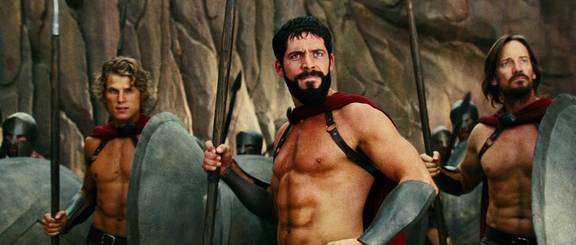Is the movie 300 an accurate portrayal of Ancient Greek history? “300” is not an accurate portrayal of Ancient Greek history. While the film is loosely based on the Battle of Thermopylae in 480 BC, it takes significant liberties with historical events, characters, and aesthetics for dramatic effect.
Here are some key points where the movie diverges from historical accuracy:
Exaggerated Visuals:
The film is known for its highly stylized and exaggerated visual effects, including slow-motion action sequences and fantastical elements, which are not representative of historical reality.
Spartan Warriors:
The depiction of the Spartan warriors in the film, particularly their exaggerated physiques and almost superhuman abilities, does not align with historical accounts. Spartans were certainly renowned for their military prowess, but they were not the invincible juggernauts portrayed in the movie.
Persian Army:
The portrayal of the Persian army, led by Xerxes, is exaggerated and often caricatured. While Xerxes was indeed a powerful Persian king, the film portrays him as a towering figure with mystical powers, which is far from historical reality.
Historical Inaccuracies:
The film takes numerous liberties with historical events, condensing timelines, exaggerating the scale of battles, and introducing fictional elements for dramatic effect. Additionally, it simplifies the complex geopolitical context of the time, including the alliances and conflicts between Greek city-states.
In summary, while “300” may capture the spirit of heroism and sacrifice associated with the Battle of Thermopylae, it should not be viewed as a reliable source for understanding Ancient Greek history.









